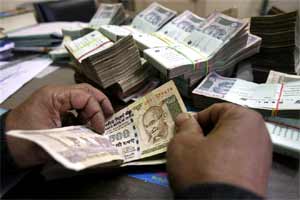Direct benefit transfer, or DBT, will likely prove to be a game changer in food subsidy. We estimate that DBT could help the government save as much as 20% (or Rs 25,000 crore) in food subsidy expenditure by eliminating costs associated with procuring, distributing and storing foodgrains. (Read Full Report)
These incidentals are so high that they raise the economic cost under the PDS above the market price of similar quality foodgrains.
Direct transfer of the difference between the market price and the subsidised price as cash to the intended beneficiaries thus, is a far more efficient option.
Moreover, DBT will help bring millions of poor households that currently do not have access to PDS into the food subsidy net. We estimate that at fiscal 2016 prices, the cash transfers under the DBT will amount to almost Rs 5,800 per year for a family of five, which will implicitly raise their disposable income.
At first glance, Rs 5,800 may seem small, but it is higher than the reported total annual expenditure (food +non-food) of the poorest 5% of the rural households and more than half the annual expenditure of the poorest 10% of urban households.
Given the high marginal propensity to consume at lower income levels, such a significant unconditional cash transfer will undoubtedly raise discretionary spending of the recipient households, providing a consumption boost the economy. Moreover, households have the choice on how to use the cash – whether to buy food grains or something else and thus maximise their utility.
We find that while households in the lowest income bracket, particularly in rural India, will purchase foodgrains, those with slightly higher income levels are likely to spend the additional ‘income’ on protein-rich food (milk, egg, fish and meat), clothing & footwear, rent & conveyance, medical and education expenses.
Thus DBT could go a long way towards raising social welfare through better nutritional intake and higher spending on health and education.
In our view DBT also fits snugly into the concept of Pareto improvement, a development that hurts none and helps at least one person – and many over time – in the economy.
The actual success of the scheme and its consumption impact on the economy will, however, depend on the progress in identifying all those eligible and the speed of its implementation.
By CRISIL Research Insight


